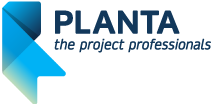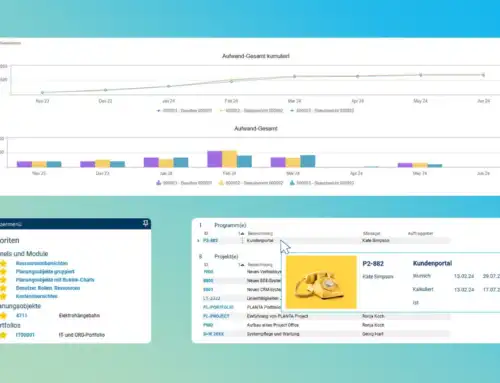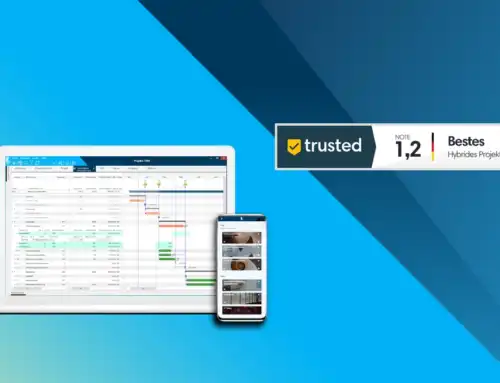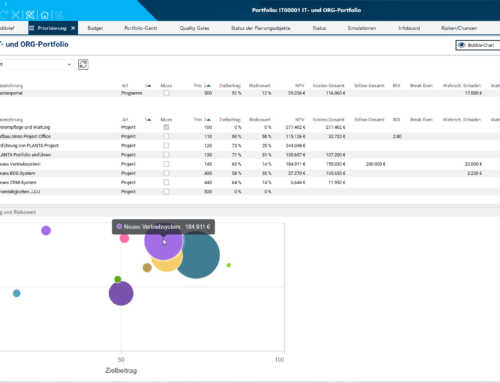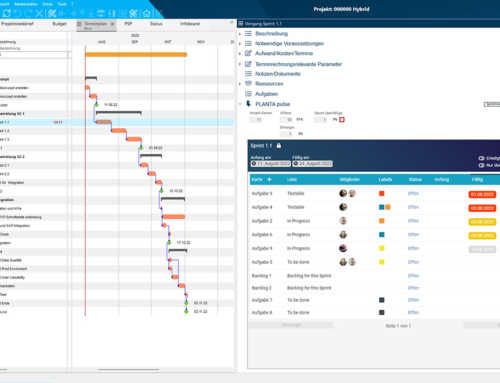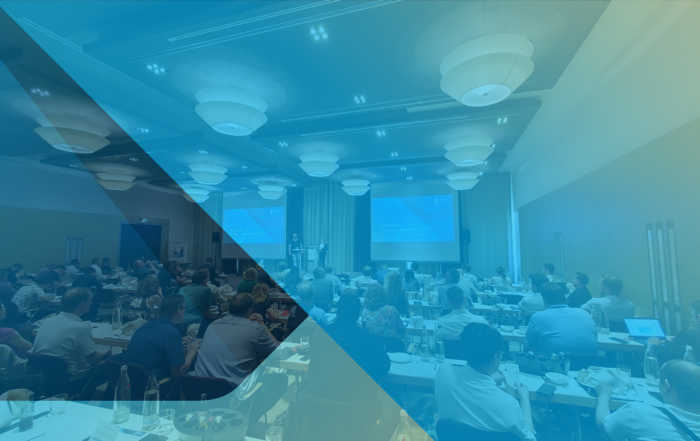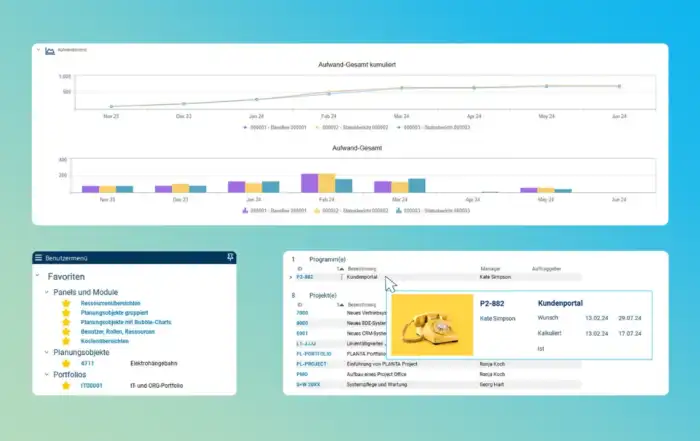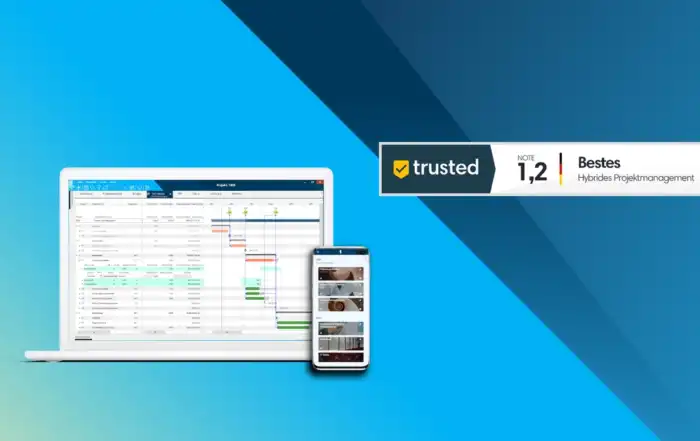Multi-Project Management as a Success Factor for the Digitalization of Municipalities
| Translated by Julian Hammer
The largest congress exhibition in Germany for digitalization in the economy and the public sector offers 60 presentations on 6 stages and a total of 130 exhibitors, live on site at Essen or digitally. PLANTA will be there as well.
Optimize Digital Processesin Economy and Administration
Administrative processes and structures in municipalities become increasingly complex. Municipalities and cities must react to political provisions like, e.g., the Online Access Act (OZG) and organize digital transformation. Digitalization requires outward-looking measures which include the provision of digital services to citizens, but also inward-looking ones to ensure that processes are efficient and transparent. As a result, new technologies become an indispensable device, particularly in multi-project management, which allow to meet the requirements imposed by the numerous digital projects. The accustomed processes of the hitherto predominant line operations are no longer suitable.
Three Substantial Success Factors
Administration generally faces the same challenges as medium-sized and large companies with numerous, often cross-cutting project teams: Planning, decision making, and informational processes must be digitalized to cope with the high number of new IT and organizational projects. Choosing the right tool is paramount for efficient project management (PM): Excel chaos and a never ending search for information should be avoided.
We can identify three essential success factors for the digitalization of processes in companies and municipalities:
- the tool question,
- commitment of the management,
- motivation of the employees.
Budget overruns are a common consequence of poor project management.
The significance of efficient project management in municipalities is a well known fact. Back in 2015, a Hertie study already established a link between poor project management and budget overruns at an average of 73 percent in 170 large infrastructure projects in Germany and concluded that “miscalculation can be explained, inter alia, by deficits in decision making, planning, and control processes”.
59 % of all german municipalities have a digitalization strategy or are planning to implement one.
Since the Corona pandemic, the subject has gained great attention. Especially in times of crises, suspended process optimization is revived and accelerated in many sectors. Many municipalities have realized the importance of a clear strategy and of a suitable tool implementation for digitalization processes:
- “Data management systems (54 %) are used in more than 50% of all municipalities.” [Fraunhofer — sources at the end of the text]
These municipalities therefore have set out a suitable framework for achieving their objectives. But we must not forget another substantial component for successful digitalization: the human factor. The employees involved in the transformation process are to reorganize tasks, processes, and projects efficiently and want to be integrated in the new process accordingly, whether by promotion and further training or by a new type of leadership: Away from “control”, towards “trust” and more individual freedom but also more individual responsibility. “48 % of the municipalities offer further training on new ways of working and methodological competences (like, e.g., in project management).” [Fraunhofer]
An integrated software platform facilitates the linkage of cross-divisional digitalization projects.
Surveys among involved municipal decision makers during the pandemic show that municipal digitalization is well under way but that perseverance is required and some psychological barriers are yet to be overcome to continue on the chosen path. These barriers range from insufficient IT budgets, “vague responsibilities and low willingness to change” to “missing interfaces and mutually incompatible software solutions”. A study carried out by Computerwoche advises municipal decision makers to learn from private enterprises: Here, the formula for success for digitalization projects is “a functioning platform organization which allows IT and technical experts to implement inter-divisional (…) transformation projects.” [Computerwoche]
The Tool Question
A multi-project management software helps planners to choose the right projects from the multitude of digital projects and to prioritize them accordingly. Projects which run simultaneously can be controlled more easily, resources can be planned across teams while keeping an eye on dates, tasks, and budgets.
Such a project management system must integrate seamlessly in the tool landscape in order for the digitalization of processes in companies and in municipalities to be successful and to make sure that no new barriers are created. The need to replace technology which has been established for a long time but no longer proves to be efficient, presents responsible managers with technical challenges. Oftentimes, simple tools like MS Excel must be abandoned since they are no actual planning tools and do not provide project management functions like assignment of work packages, dependencies, time recording, reports on the precise project progress, etc.
To ensure that not only project planners but all persons involved in a project are provided with the required information, even when they work in dispersed teams, the new software must store all data in centrally in one system to which all project team members have access. Due to the change of professional life which has taken place during the last two years, consistent communication without e‑mail flood has become a substantial factor. Topics such as home office or the collaboration of project teams independent of location also accompany the transformation process in the public sector. This transformation process can only be successful if teams, the members of which are not working door-to-door have the right software solution at hand which allows them to harmonize their tasks and communicate possibly occurring changes in a transparent manner.
A hybrid project management system combines two PM methods and generates flexibility for management and project teams.
Depending on the provider, a hybrid project management system offers ideal support for management and project teams by combining two PM methods, helping them to cope with their project tasks. In the system developed by PLANTA, planners and management are provided with a schedule and milestones, project status reports, etc. as part of the traditional project management method, which allows them to draw reliable conclusions in terms of dates, costs, and project progress. Team members manage their tasks, record hours worked, and consult with the other team members via an agile PM component, the so-called collaboration tool. Tasks can be created quickly on the basis of intuitive Kanban boards and new project team members can settle in quickly.
Commitment of the Management
A substantial factor for successful digitalization is the motivation of the persons involved, particularly the cohesion within project teams. Managers at all levels of administration must actively participate in the transformation process and entrust responsibility to networked teams while helping them to assume this responsibility. They have to communicate the objectives and benefits of digitalization and of the new project management system in a transparent manner. Their support for the new planning concept allows for successful implementation and acceptance issues that would jeopardize the actual use of the new software and the digitization process can be effectively avoided.
Motivation of the Employees
All persons involved need clarity as to what their responsibilities and their roles within the project are. The significance of individual motivation for the success of the transformation process must not be underestimated. A set of rules, like a project manual in which team members can look up basic information on new methods like traditional and agile project management and which helps to swiftly induct new colleagues, can be an important pillar. Furthermore, regular coordination in short meetings — also in digital form from home office — are indispensable to keep all persons involved up-to-date and to leave no one behind.
What is substantial is a straight-forward definition of the area of responsibility of any project team which can then plan the details of their tasks autonomously in line with agile methods. The new processes should allow teams to develop a certain degree of self-organization. Trust rather than micro-management. However, team members must also be aware of their responsibilities and must transparently communicate challenges ahead and possible escalations within their teams and vis-à-vis the management.
If companies and municipalities take the three success factors described here to heart, nothing will stand in the way of successful digitalization.
“Strengthen smart city digitalization by multi-project management” — Interview Digital Future Mag 08/22 with Jochen Geißer, PM expert at PLANTA
Here you will find further information
Sources and Bibliography
Meanwhile, numerous publications and work groups, e.g. GPM (a professional association for project management), provide orientation and assistance in the transformation process
- Hertie School Study 2015: Study: Large infrastructure projects in Germany are 73 percent over budget on average
- COMPUTERWOCHE, CIO-Magazin, IDG Research Services: Online survey “Digitalization in public administration” of Sept. 2021 (in German)
- Interview Hermes Arzneimittel: Introduction to Agile Planning Tools in Addition to Traditional PM
- GPM Blog: Interview Ina Gamp GPM in PM Blog
- Silke Schönert, Michael Münzberg, Dieter Staudt (editor), Project Management in Public Administration, Symposion 1/2016
Related Posts
RECENT POSTS
Speakers of the 21st PLANTA User Forum 2024
Ameline Fauchon2024–04-22T11:01:53+00:0022. April 2024|
PLANTA project Update Optimizes Usability and Resource Planning
Andrea Jennifer Schmidt2024–04-22T11:03:25+00:0018. April 2024|
Best Hybrid System in Project Management Software Test
Beate Schulte2024–04-10T09:23:33+00:0015. February 2024|
